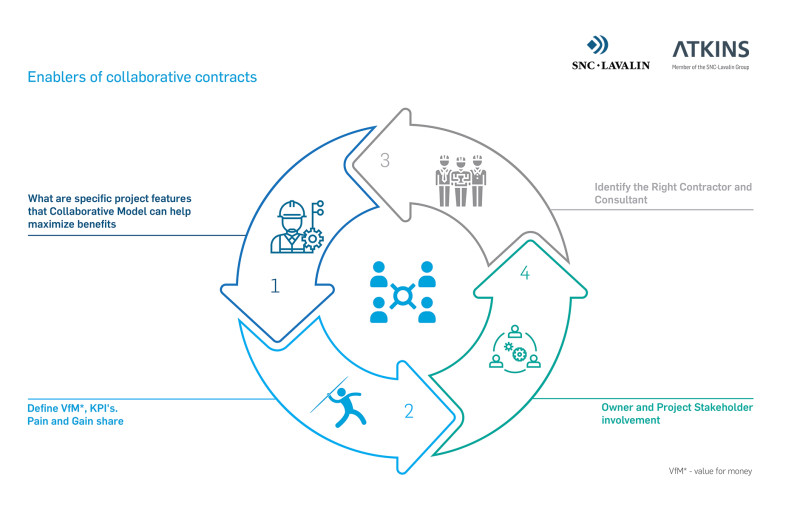The Group has launched a white paper that provides a strategic framework to enhancing project delivery and efficiency in the GCC
The SNC-Lavalin Group in the Middle East has launched a white paper entitled ‘New Alliances: Collaborative Contracting in the GCC Projects Market’ that provides a strategic construction frame to accelerate project delivery and capabilities in the GCC.
The framework combines the Company’s market knowledge with its end-to-end services broadly including consulting, advisory, design, engineering, procurement, project & construction management, and operations & maintenance expertise under the SNC-Lavalin, Atkins, Atkins Acuity, and Faithful+Gould brands.
The white paper was launched at a recent live webinar that included a panel discussion and open Q&A with industry leaders across the region. The panelists who led the discussion included Faisal Butt, Director, Project Delivery, The Red Sea Development Company; Raymond Hector, Director–Commercial Contracts, Aldar Properties; Paul Abbosh, Managing Director, GCC–excluding UAE & KSA, Atkins, a member of the SNC-Lavalin Group and Sean McQue, Operations Director, Alec.
The need for a new approach
Over the past two decades, the GCC has established a reputation for delivering ambitious megaprojects that push the boundaries of what can be achieved. With an estimated US$ 2.9tn of major projects planned or underway at the end of 2020, there are abundant future project opportunities in the region.
In addition, the Covid-19 pandemic has amplified the challenges facing project delivery. Despite the challenges, this disruption of the pandemic provides an opportunity for the GCC projects industry to rethink its approach.
Throughout 2020, the pandemic encouraged people and companies to collaborate in order to overcome the challenges of remote working and social distancing. In particular, the crisis has accelerated the adoption of new digital and online technologies
Collaborative contracting
Collaborative contracting is the key to resolving many of the challenges facing regional project delivery and has been shown to deliver considerable financial savings, improved quality of assets and optimization of available resources.
Digital transformation
Digital technology is the key enabler of closer collaboration between parties from different phases of the project lifecycle, as well as improving the coordination of multiple teams in real time. The wave of new digital solutions is emerging at the same time as project clients are increasing their demand for faster and efficient construction.
Drivers of collaboration
Collaborative contracts are well-suited to complex, medium-to-long term projects that involve multiple stakeholders. These complex, large-scale projects carry a larger number of risks than smaller developments, and consequently need to be better managed from the outset. However, one size does not fit all.
Selecting the right consultant and contractor that share a collaborative mindset and expertise is key to steer a project towards efficient delivery and positive outcomes. Owner and stakeholder involvement is another key enabler of collaboration. This can be achieved by appointing an alliance management team that includes representatives from all parties to oversee project progress and delivery at all stages.

